Brother Ali might be your favorite rapper’s favorite rapper.
When walking around San Bernardino, California’s heat, Brother Ali stops to chat with Earl Sweatshirt, one of this year’s most talked-about artists after releasing Doris in August. Sweatshirt lets Brother Ali know that he’s heard Left In The Deck, Ali’s most recent effort, a free project he debuted in September. He praises his work on the collection, one that was pieced together with songs that didn’t make Ali’s Mourning in America, Dreaming in Color album, a set produced by Jake One in 2012. Ali is grateful for the praise that Sweatshirt has given him, but Earl isn’t alone.
Moments later, Brother Ali performs in front of “Rock The Bells: Los Angeles” attendees who are reciting his every word as he growls and raps lyrics from various projects in his discography. There’s potency in his vocals, even when the microphone cuts off momentarily. Behind him, on the side of the stage, is Murs, one of the event’s organizers, a fellow performer and Ali’s longtime friend. Murs, standing beside his family, vibes to Ali’s songs, mouthing the words from the catalog as Ali roars at the crowd.
Ali’s discography is deep. Of course, it dates back to 2000, when he independently released Rites of Passage. His breakthrough, however, would come in 2003, with the release of the Rhymesayers Entertainment-backed Shadows On The Sun, a critically acclaimed release that allowed Ali’s voice to travel from Minnesota to a walkman near you. Subsequent releases all worked to prove that his voice remained a strong one in the culture, and his dedication through touring helped spread his words to fans. Some of those fans, like Sweatshirt, are now performing in festivals with Ali, praising his work’s influence.
So, when Brother Ali was walking around Manhattan, New York, it should come to no surprise that he would be stopped by a group of young men, eager to celebrate his efforts on wax. The young men spoke highly of his talent before Ali thanked them and kept it moving. Ali, who is legally blind, was unaware that the crew that stopped to praise him was comprised of members from A$AP Mob.
Like Earl Sweatshirt and Murs, other rappers have also given Ali praise. Chuck D, Immortal Technique, Joell Ortiz, Evidence, Slug, Freeway, Fashawn and others have worked with the Rhymesayers rapper on the strength of skill and dexterity that fans and emcees can relate to.
But when the music turns off, Brother Ali is still hoping to inspire.
This was the case when Brother Ali and others worked to organize a “Day of Dignity” for homeless people in his community. The outreach event provided homeless people with free healthcare services, haircuts, books, school supplies, winter clothing, meals and health and hygiene kits. Ali participated and brought friends, like Freeway, Slug and Dessa, along to help.
This was also the case when Brother Ali and several others were arrested in June 2012. According to CBS Minnesota, Ali was one of 13 reportedly arrested during an Occupy Homes rally in South Minneapolis. He was arrested on charges of trespassing and refusing to depart. Approximately four hours after his arrest, Ali reportedly posted $50 bail and left the Hennepin County Jail. He posted a Twitter message soon after, explaining the situation from his perspective.
On or off the mic, Brother Ali continues to do what he feels is right. He continues to fight. During a recent sit-down with HipHopDX, Brother Ali, who is set to embark a November tour through Europe with Dilated Peoples, spoke about some of these plights. Ali also discussed a possible project with Freeway, not having a television and why he feels he’s so honest in his lyrics.
How Brother Ali Struck Up A Friendship With Stalley
HipHopDX: Earlier today we were talking to Stalley. He came out, and he said some incredibly nice things about you. He said that he loved being a part of your “Day of Dignity” event, and he said anytime you call him, he’ll be there.
Brother Ali: That’s tight.
DX: So I wanted to deliver that message, and then I wanted to ask you…
Brother Ali: Stalley is my friend. Shout out to Stalley. That’s my brother.
DX: Where did that relationship originate?
Brother Ali: Completely out of the blue. I called him ‘cause I was doing an annual event, “Day of Dignity,” as you know, because you’re my man. We do this thing every year in Minneapolis where we have a block party in the hood. Homeless people come out and get treated like a person, so everybody gives them clothes, and everybody gives them food. But homeless people come out and get haircuts, massages and dental check-ups. They just really get to leave out of there feeling like somebody, and they get to experience the things that middle class people experience, and they also get connected with long term stuff too. But then we set up a big stage, and it’s at a mosque, so it’s really cool because that’s not something… Not every mosque would have a Rap show in their premises, but we do out there.
So I called Stalley out of nowhere. I think I might have hit him on Twitter, but we got that connection of just both being Muslim and both being from the Midwest, and we both came up a similar way. I really respect Stalley, because there’s so much pulling him in different directions and the fact that he’s with Maybach Music. I’m sure that there was pressure. Maybe he didn’t feel it because he’s so who he is, and he’s so grounded in himself and present in the moment. But there’s probably a lot of pressure for him, and just even signing with that label. He could make Meek Mill records if he wanted to, but he makes Stalley records. He makes Stalley music the same way he made Stalley music before. I just love that about him, and when he came out he was exactly like I thought he would be. He was just with the people—no security…just cool. People were coming up to him losing their minds and freaking out. He stayed all the way to the end. After we closed, he came and hung at the mosque, and I think my son was trying to impress him. My son is an actor, and he’s trying to be a comedian. So he’s sitting there cracking jokes, and Stalley is like bagging on my son—giving him the real uncle treatment.
That’s how I judge if I’m really friends with a rapper. People will be nice because they just are like, “We do the same thing,” so there’s a camaraderie there automatically. But when people come around my kids, and I leave and I come back? Immortal Technique has sat on the couch and held the kids… Murs obviously, Chuck D, Stalley and Freeway. There’s just certain people that I’m just like, “Those are actual friends beyond the fact that we respect what each other does.” Those are actual brothers and part of my life. I love that shit.
How “Day Of Dignity” Combines Activism & Organizing
DX: I’m going to take you back to “Day of Dignity” a little bit. A lot of people see the homelessness and don’t do anything about it. What prompted you to do something about it?
Brother Ali: Well having those events is really great, and there’s a difference between activism and organizing. Activism is when you have an event that raises the consciousness of people that basically says, “We all know there’s a problem.” And you’re basically encouraging people to get involved. So events like “Day of Dignity” are good to have. People get to come, feel good, celebrate and actually do something good. But what’s really important—and what I’m starting to learn the more I engage in this work—is that what’s really important is organizing people. Activists get to stand up, and at “Day of Dignity” I get to stand on stage, and I invite Stalley or Freeway or Atmosphere or whatever. We get to stand on stage and say what we want to say; we get to feel good that we did something good. And it is good, but what’s more important than that is building power for communities.
People have been pushed out over and over by the system to the point where they just get apathetic. They’re like, “I don’t have any place in powerful situations at all. The system is just not set up for me.” And they’re right. It’s not; the system is not set up that way. But when people work together, and they’re actually organized and strategic about how they do things, you can actually start to chip away at the structural and institutional things that keep people in those situations. So there’s homelessness because our society is engineered for that to be that way. But as a culture and as a human family, we do have the right because we are more powerful. It’s just that we are apathetic…we’re asleep. So the more we wake up, and the more we actually organize, that’s the real work that I’m looking forward to doing in the future.
Why Brother Ali Says Independent Hip Hop Had To Happen
DX: You also talked about rappers as friends. I was watching you perform earlier, and right behind you was Murs with his wife and his son. What does it mean to know you’re connecting with other emcees?
Brother Ali: Well me and Murs went on tour together right when I was learning… I would say that Murs and Slug taught me how to make a living doing what I do, and I’m forever grateful for them for that. But then also, me and Murs just had an automatic bond once we started touring together. We just had this bond that was just incredible.
DX: And that’s what I mean, you get a lot of love from emcees that come out.
Brother Ali: I just met Earl Sweatshirt, and he was like, “Yo, I just heard your new tape.” That was awesome, man! I love that.
DX: We just talked about this recently, but you’re connecting with a lot of emcees who are building a buzz independently as well and now they’re seen as major stars, whether it’s Earl Sweatshirt or the A$AP [Mob]. What do you think allows for that to happen?
Brother Ali: Well I think it was inevitable that the independent thing had to happen for everybody, just because record labels are just not a viable business anymore except for the people at the extreme top. They’ve gone the way of every other business. Fifty years ago, you could open a hardware store in your neighborhood, and you could be the hardware store for everybody in that area. When they needed a hammer or a lawn mower or whatever, they came and bought it from you, and then Walmart came in and shut all of that out. That just doesn’t exist anymore. So that same thing is happening in the music industry now, to where you can only exist in that record label world if you’re at the very top. So people are being forced to have to figure out how to do the independent thing.
For Rhymesayers and us in the Midwest—and the same is true for Tech N9ne and Living Legends—but especially within the Midwest, nobody was even looking at us. We didn’t even have the opportunity to even go to the office of anybody for any reason. We were never getting a meeting with anybody, and so we were forced by necessity, 10 and 15 years earlier, to start having to figure out how do you do this as a Hip Hop artist. We were able to put bricks in the building, so that when it was time for people to become independent, there already was some structure. And so now they’re like, “Okay, we need to go on tour.” Well the venue promoters in Omaha, Nebraska know what a Hip Hop show is now, and they’ve had experience with it because we’ve been going there for 10 to 15 years. Also, some of the big booking agents have been booking us, and they’ve watched what we’ve done. Whether they realize it or not, a lot of the guys have been have been able to take some of the foundation that we were able to lay down because it is a culture.
Anytime there’s a culture when people come in and do something, you do it for yourself, but you also provide a new layer of bricks for the culture to live in. So it’s been really cool to see people be able to take that to the next level. We never thought somebody would take it there—where Wiz Khalifa, Macklemore and a lot of these guys have been able to do it—and I love it when they shout us out. Wiz Khalifa, A$AP Rocky… A$AP Rocky has always shouted us out. I was walking one time in Manhattan, and this group of like 22-year old young brothers in thousands of dollars of Italian clothes just like rushed me and showed me all this love. I was like, “This is bugged out,” and then later on I found out that it was A$AP Mob. That’s very cool. That’s very cool that they do that.
Brother Ali Discusses Possible Project With Freeway
DX: You also mentioned Freeway earlier as a close friend. We know he’s worked on an album with you or at least on a series of songs. What can you tell us about the progression of that project?
Brother Ali: Well when we did “Day of Dignity,” he stayed at my house for a week, and we made songs. We just really need to get together and finish it. We made a few, and we did one that I really love. The other two are really good too, but one of them in particular I think is special.
DX: What was that joint about?
Brother Ali: I think I’d just rather wait. I’ll tell you about it when the cameras are off, but I don’t want… I don’t like talking about things until they’re actually about to materialize. So hopefully by the end of this year or early next year, me and Free can get together. But I love that guy too. My daughter loves him, and she calls him Uncle Free.
DX: Uncle Free… What’s that feel like?
Brother Ali: It’s hilarious, because Freeway is a ferocious dude who grew up in Philly. Philly is still wild, but when Freeway grew up it was even wilder. I went to Philly one time and ran into some Muslims, and I didn’t know about the fact that you could be a very strict Muslim in Philly and also be a very thorough dude hustler. I didn’t know that. That’s a Philly phenomenon—Jersey too—but really Philly is huge on that, and I didn’t know that. So I’m chilling in Philly. I’m like 15 or 16. I see these dudes, and they got thobes on with walking sticks and miswaks in their mouth. I’m a brand new Muslim, so I’m super hype. I love the fact that anywhere you see Muslims you’re family, and so I run up and embrace these guys. I’m standing their talking to them. I’m looking, and there’s a couple more over there, and there’s a couple more over them, and I know what the spot looks like. They’re out there hustling, and I’m like, “Let me ask you something, brother. Why would you wear all your stuff and you’re out here hustling? If you have to do this, why are you representing Islam and doing this at the same time?” And he was like, “Yo son, you need to move on,” and I’m like, “Nah man, this is foul.” He pulled out this big ass gun—like this big shit—and was like, “Yo son, move on.” And I was like, “Hasta Luego.”
That’s the kind of Philly that Freeway comes from. He’s a ferocious dude, but when he’s around kids, he’s so soft-spoken. That’s a beautiful thing to me, man. I love the complexities of people. He’s that way because the world forced him to be ferocious like that, but that’s not who he wanted to be. He still kept track of his humanity to where he can hang out with a little kid; they’re playing and he’s like super silly. Yeah, kids love him…my daughter loves the shit out of him.
DX: Did you tell him that story?
Brother Ali: What story?
DX: Freeway. About you being 16?
Brother Ali: I imagine I did. I can’t remember telling him, but I probably did.
Brother Ali Explains Why He Doesn’t Like Television
DX: That’s crazy. This duality of having different kinds of heroes has been a part of TV. Are you familiar of “Breaking Bad?”
Brother Ali: It’s weird, man. I’m not a big TV guy in general. I Watched “The Sopranos” when that was out, and I watched “The Wire” when that was out. I liked “Six Feet Under.” This is 10 years ago. I’m just not…
DX: I know you’ve got to watch for the kids…
Brother Ali: I’m saying. I don’t have TV at my house, so I don’t watch much TV. I don’t like what it does to my brain. I don’t like being told the story that everyone else is being told. I like to seek out other stories, because the story that everyone is being told—I like to know about it, and I’m aware of it—but I don’t really like that. I’m to the point man…it’s weird. I don’t like seeing naked people on TV. Men and women, I just don’t like it. I don’t know if it’s me getting old or if it’s more of like a… it just feels weird, man. It’s one of my weird little idiosyncrasies. I just can’t. I just don’t like seeing naked people.
DX: In a degrading manner?
Brother Ali: It just feels too intimate. It feels like, “I don’t know this person.” Now if it’s part of the story, and if it’s real, you know what I mean? But I feel like they just do it just to do it. It’s like, “Now here’s the sex; here’s the titties!” And it’s not that I’m mad at titties, but it just feels strange that it’s got to be a part of everything. Just like I don’t smoke weed, and I don’t have tattoos. When certain people had those things because it’s who they were, I respected that. The fact that that’s everything now—everybody’s got tattoos, everybody’s smoking weed—it just gets played out. Something about it is just wack to me now after a while. Those are things that I respect when somebody is about that; it means something to them. But something just bothers me about the fact that somebody’s got to be naked in everything.
DX: It’s ill that you were talking about that because…
Brother Ali: “Breaking Bad” isn’t like that, but that’s kind of a TV thing.
DX: Right, but it’s ill that you were talking about nudity on TV, because you often said that you are bare on records. And when we were talking to Stalley, he talked about being guarded when he first started rapping, and even on his previous project. He said he only just now feels like he’s bringing his own personality into it.
Brother Ali: And that’s what I’m saying. He got that way more when he was on Maybach Music, which maybe there may have been pressure for him to try to be even more cool, and he’ll let down his cool even on those Maybach records.
Brother Ali Credits Slug & Musab For His Sincerity In Rhymes
DX: But going into your own work, why has that always been imperative for you? Was that always a conscious thought, or was it just organic like, “This is how I write?”
Brother Ali: I’ve kind of always done it, but I do have to say that Musab and Slug helped me do that. Musab has a huge impact on Rhymesayers. His records never were the biggest sellers, but in terms of us knowing what’s up, Musab created the way that me, Slug and Ant started making music. Musab is the one that brought Ant to the table, so Musab is a huge part of what we do. He was already doing that. He would have these songs that were just very vulnerable, and Slug did it too. And then when I started doing it, I think I did it in a way more detailed way where I told these very specific details of my life. But all three of us kind of did it, and I think Musab and Slug were the guys that really made me want to do that.
DX: So detailed in fact. Has it ever gotten you into some trouble?
Brother Ali: Not trouble, but there’s times where I do think to myself that there may be something a little…it’s interesting that I have a microphone, and I’m telling stories about me. But they’re my relationships with other people, so in a way I’m telling somebody else’s story, and they’re powerless in that situation. There’s times where I do think about that. At the time that I did them, I felt like I’m living through this. So if I write a song about my divorce or somebody I love that’s on drugs or committing suicide—something that I’m living through ‘cause they’re in my life—that’s my reality. So I felt like I get to do this, I get to make art about what I care about. But now, sometimes I think more about the fact I make this music, and in a way I put other people’s stories out there. They’re still mine, but I share them. They’re not only mine, because I share them with people, and they don’t have as much power as I have in that situation.
DX: I remember you told me that you…
Brother Ali: But I try not to ever diss people. I’m sorry to cut you off, but even when I’m going through a problem with somebody, I never throw them under the bus—ever. I’ve never just made a song where I said this person is bad and I’m good. I’ve never done that. That’s another part of it too; I always try to show their humanity at all times. So many of these stories are about my dad, my wife, my mother-in-law, my son, my kids and myself. I don’t always make myself look good, so I try to be as fair and honest as possible.
DX: I’ve heard you talking about bringing the tracks to your son and saying, “Hey, I’m about to put a little of your business out. Are you cool with it?”
Brother Ali: With the song “All You Need,” I did that. There are other people that I didn’t ask, but I tried to really… Again, I talk about I’m raising a child, and this is the other side of his family. They’re still in my life or were up until very recently, and so me talking about those realities, I try to always let those people be humanized. I say, “These are things that they’re doing, but let’s think about why they’re doing them.”
RELATED: Brother Ali Explains “Mourning In America And Dreaming In Color,” Remembers Eyedea
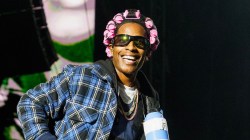
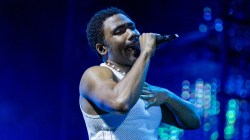

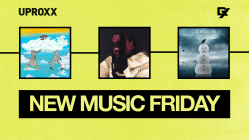
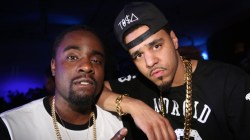

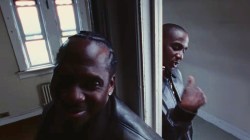

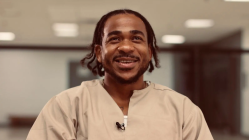
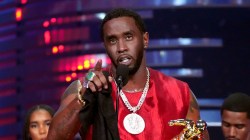
until I saw the paycheck saying $8793, I accept …that…my sister was like they say realy bringing in money parttime from there computar.. there neighbor has been doing this 4 less than twenty one months and resently cleard the dept on there house and purchased a gorgeous Cadillac. Visit Website… http://www.Fb39.com
not by pretenious self-posturing and relentless running of the mouth camparing himself to others who actually made an impact with their accomplishments.
One of the most underated rapper of our generation…
Great interview
when did pai mei from kill bill trim his beard????
Ali is such a gentleman, and a true MC. I love everything he does. Hard to touch that talent.
credit has to go to ross and maybach though. I would have never guessed he’d sign half the people he did. and even w/ wale it made him better, it adds dimension.
I really enjoyed this interview and read the whole thing to the end which i rarely do now a days respect to brother Ali hope your grind stays blessed peace
Dude looks like a Jedi.
Great interview , genuine dude.